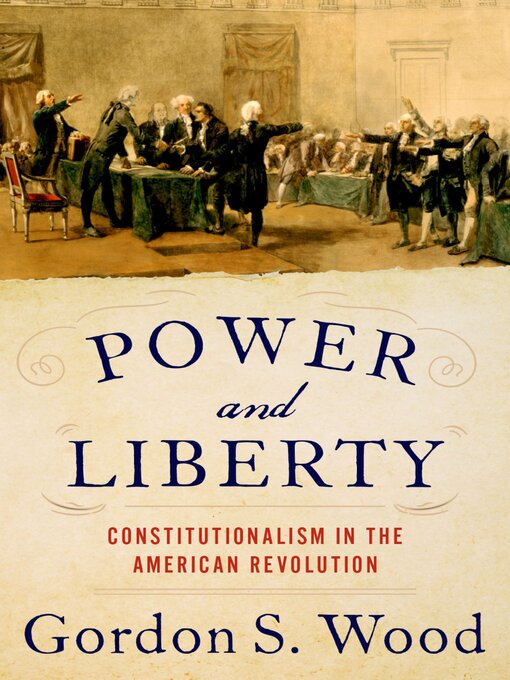-
Creators
-
Publisher
-
Release date
August 2, 2021 -
Formats
-
Kindle Book
-
OverDrive Read
- ISBN: 9780197546932
-
EPUB ebook
- ISBN: 9780197546932
- File size: 1534 KB
-
-
Languages
- English
-
Reviews
-
Publisher's Weekly
July 5, 2021
Pulitzer winner Wood (Friends Divided) surveys the “politics and constitution-making” of the Revolutionary era in this astute if somewhat familiar history based on a series of lectures he gave at Northwestern University in 2019. Discussing the Declaration of Independence, the Articles of Confederation, the Constitution, and other foundational documents, Wood finds that the revolution was much more “radical” than many of the Founders anticipated, because it released the “aspirations and interests” of thousands of “middling, commercially minded people.” He also claims that revolutionary rhetoric, which cast dependence on England as a form of enslavement, contributed to a rapid decline in indentured white servitude, which in turn made Black slavery “more conspicuous than it had been before,” and put American slave owners on the defensive for the first time. Though 19th-century abolitionist William Lloyd Garrison labeled the Constitution “a covenant with death,” he had little understanding of the circumstances in which it was written, according to Wood, who credits the emancipation of slaves in Northern states after the revolution with setting the stage for the abolition of slavery in “the whole of the New World.” Wood has made these arguments before, but they’re restated lucidly and concisely here. The result is a welcome distillation of an influential career. -
Kirkus
Starred review from June 15, 2021
The Pulitzer and Bancroft winner delivers another masterful book of Revolutionary War-era history. No historian knows more about the founding years of the U.S. than Wood. In his latest, he once again demonstrates his characteristic clarity in an examination of the origins and growth of American constitutional principles from the Stamp Act crisis of 1765 into the 19th century, "the most creative period of consti-tutionalism in American history and one of the most creative in modern Western history." This introduction to the formative half-century of American history maintains a taut focus on the nation's early constitutional development. While that emphasis comes at the cost of attention to social realities, the author sharply clarifies the stages that the founding generation went through to create their governments and the struggles to understand what they were doing. To Wood, American's growing realization during and after the Revolution that they had to discard the Articles of Confederation for a new frame of government constituted "a momen-tous change, and one not at all anticipated in 1776." As the author notes, it created "a radically new government altogether--one that utterly transformed the structure of central authority." In what's likely to be the most controversial aspect of the book, Wood finds the origins of this transformation not in an economic and social crisis prior to 1787 but rather in the maturation of American constitutional thought. The author shows that the Constitution didn't arise out of social and economic turmoil; instead, it emerged from constitutional, legal, and structural realities as well as innovative thought. Wood's argument is the most potent in the brilliant two chapters on the judiciary and the distinction between public and private spheres of life. While he may receive criticism for overlooking much of the social and cultural history produced by other historians, no one will be able to ignore the power of his arguments. A fresh, lucid distillation of Wood's vast learning about the origins of American government.COPYRIGHT(2021) Kirkus Reviews, ALL RIGHTS RESERVED.
-
Loading
Why is availability limited?
×Availability can change throughout the month based on the library's budget. You can still place a hold on the title, and your hold will be automatically filled as soon as the title is available again.
The Kindle Book format for this title is not supported on:
×Read-along ebook
×The OverDrive Read format of this ebook has professional narration that plays while you read in your browser. Learn more here.


